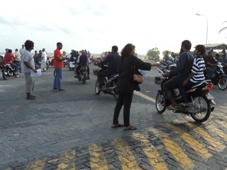The ruling Maldivian Democratic Party (MDP) and minority opposition People’s Alliance (PA) have come out in favour of making MPs financial statements public.
Deputy Speaker Ahmed Nazim, PA parliamentary group leader, told local media yesterday that the party will send a letter to the parliament secretariat requesting that financial statements of its MPs should be made available to state institutions upon request.
The decision comes after the Anti-Corruption Commission (ACC) entered parliament on Thursday under a court order to seek MPs’ financial statements. The commission has since told local media that it sought the statement of one MP, whom it did not reveal.
Meanwhile MDP parliamentary group leader, MP Ibrahim Mohamed Solih, said at a press conference yesterday that the party believed financial statements should be made available to anyone who sought it.
“Since we are representatives of the people, we believe that the public should know about MPs’ incomes, standard of living, and what they do with their incomes,” he said, adding that the party would “establish a proper system” to make the information available.
A decision would be made following discussions at the MDP’s national council or parliamentary group, the MP for Hinnavaru said.
In April this year, parliament reached an impasse on public declaration of assets by MPs after voting against a proposal by the Ethics Committee to not make the information available unless ordered by a court of law.
When MPs voted against the proposal 34 to 24, Deputy Speaker Ahmed Nazim declared the matter “void.”
“However, the Secretary General’s request for counsel on this matter has not been decided one way or the other,” he said at the time. “So the Secretary General will go ahead with it according to the rules of procedure.”
The Secretary-General had asked the Ethics Committee to determine whether MPs’ financial statements should be released to other state institutions upon request.
Secretary General Ahmed Mohamed confirmed to Minivan News that the requested financial statements and documents were provided to the ACC team before the court order expired at 3:00pm.
According to Article 76 of the constitution, “Every member shall annually submit to the Secretary General of the People’s Majlis a statement of all property and monies owned by him, business interests and liabilities. Such declarations shall include the details of any other employment and obligations of such employment.”


